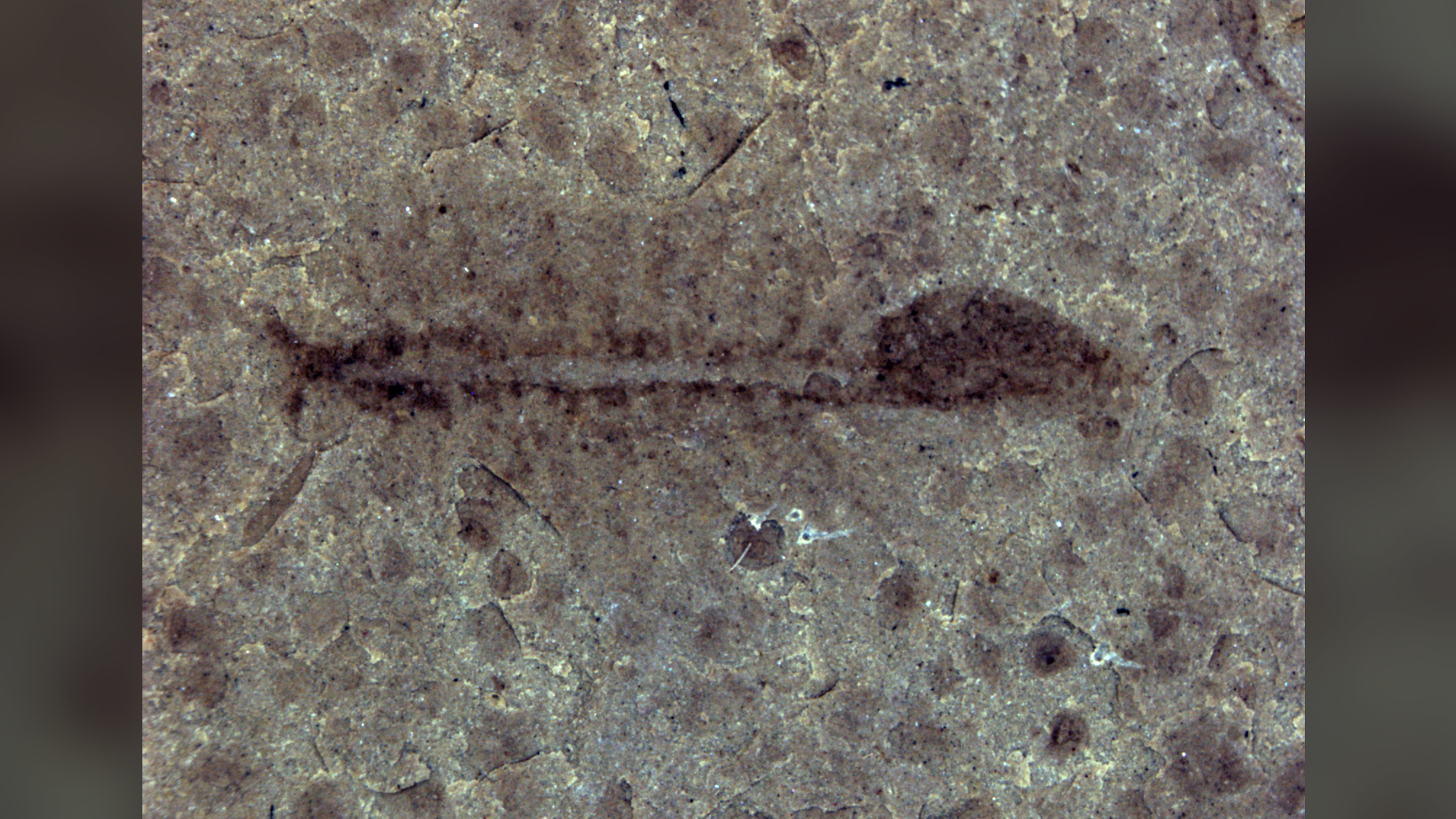
Ancient female fairy shrimp may have gotten along just fine without males. Researchers studying Cretaceous-period freshwater fossils in the Koonwarra fossil bed in southern Australia have described a new species of now-extinct freshwater shrimp (Koonwarrella peterorum) whose females likely reproduced without sex — a phenomenon known as parthenogenesis, which is a type of asexual reproduction.
Parthenogenesis is the spontaneous development of an embryo from an unfertilized egg. It’s known to occur in both plants and animals, although it is thought to be extremely rare. Some species, such as whiptail lizards, reproduce exclusively through parthenogenesis, but some sexually reproducing species have been known to reproduce parthenogenetically, as in the case of two fatherless California condors reported in the Journal of Heredity in 2021.
“As far as we can tell, [parthenogenesis] is unknown in the fossil record of fairy shrimp,” study co-researcher Thomas Hegna, an assistant professor of paleontology at the State University of New York (SUNY) at Fredonia, told Live Science. Although parthenogenesis has been spotted in modern brine shrimp, this is the first time it has been recognized in freshwater varieties.
This new species was identified from 40 individual fossils across the Koonwarra fossil bed, a paleontological site dating to the Aptian age (125 million to 113 million years ago) that’s rich in fossils, including feathers from avian-line dinosaurs, as well as bony fish and invertebrates such as these fairy shrimp. The fossils themselves are housed in the paleontological collections of the Melbourne Museum in Victoria, Australia.
Related: Hundreds of three-eyed ‘dinosaur shrimp’ emerge after Arizona monsoon
The shrimp fossils unearthed from the Koonwarra fossil bed don’t look much like the shrimp found in the scampi on your dinner plate. Instead, they are much more closely related to modern sea monkeys (Artemia salina), which are a variety of brine shrimp. K. peterorum left their mark as dark, 0.4-inch-long (1 centimeter) imprints in the sedimentary rock that suggest they sported elongated bodies with multiple sets of legs, which cause the fossils to look faintly like the shadow of a small fern or the head of a toilet bowl brush.
Study first author Emma Van Houte, an undergraduate student at SUNY Fredonia, analyzed the fossils to determine their potential place on the evolutionary tree. However, there was a problem: Most invertebrate species are classified by male morphology. This is because males in most of these species have very distinct characteristics that are useful for setting them apart from other species.
“The males have these large, grasping antennae used for sexual reproduction, as well as male genitalia,” Van Houte told Live Science. None of the 40 specimens that Van Houte examined had any of these characteristics.
Instead, Van Houte could clearly spot egg pouches, implying that this was a female-only group of shrimp that likely reproduced asexually. After ruling out other explanations, such as hermaphroditism — when an individual has both male and female reproductive organs — or the premature decay of typically male characteristics, the only remaining explanation was that the shrimp were parthenogenetic.
According to Hegna, one reason asexual production is rare is that species that do it always pass on their genes, whether they are good or bad, whereas sexual reproduction allows animals to separate good genes from potentially harmful ones. However, parthenogenesis, he suggests, could be advantageous when it comes to dispersing to new locations, like small, isolated ponds.
While the fossil fairy shrimp in the Koonwarra fossil bed may be completely parthenogenic, there is evidence from modern fairy shrimp that asexual reproduction in these animals might exist on a gradient, Hegna noted.
“There is one population of fairy shrimp in Australia that might be parthenogenetic,” Hegna said. But the species is not completely asexual, either. “Males [in this species] are really, really rare. And so there may be this gradient that’s tied into the dispersal strategy, which is kind of neat.”
This research was published March 28 in Alcheringa: An Australasian Journal of Palaeontology.
Originally published on Live Science.


